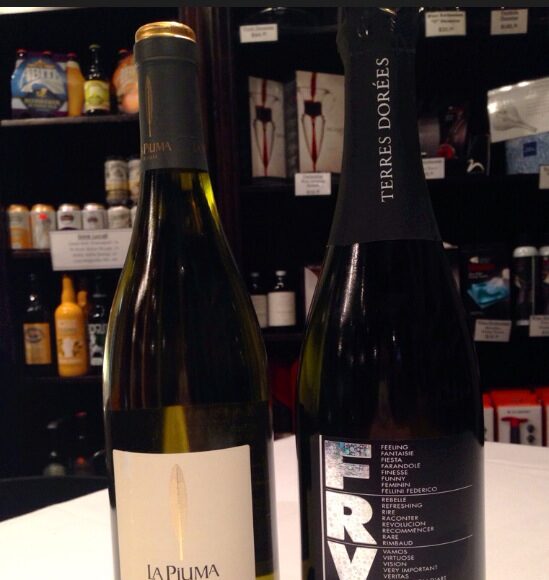F.R.V.100 is a play on words. To the French it is pronounced eff-err-veh-cent (sound that out aloud a few times if you don’t get it). F.R.V.100 is a sparkling rosé wine made from the Beaujolais native grape, Gamay. You might be familiar with Beaujolais (southernmost part of Burgundy) because of the widely produced inexpensive Beaujolais Nouveau released every Thanksgiving as “the first wine of the year,” but don’t let that ruin all Beaujolais for ya. Traditionally, Beaujolais produces light, fruity reds with lower levels of alcohol which are made to be drunk very soon after bottling as opposed to storing in a cellar for ten years. Jean-Paul Brun is the winemaker responsible for F.R.V.100, and his methods are true to the grape and region; with just a few slight differences. He uses indigenous yeasts in his fermentation process instead of the popular industrial yeasts used by more of his colleagues, and he steers clear of chaptalization, the addition of sugar to the juice before fermentation to increase the sweetness and alcohol levels. Brun allows his wine to speak for itself in that he bottles the wine just before fermentation is complete, giving the wine a hint of residual sweetness along with bright cherry flavors, an alcohol level of 7.5%, and a very pleasant fizz. F.R.V.100 would make a great light aperitif to precede a meal or to go along with another national treasure of France: cheese. Creamy, buttery brie and Camembert would be the perfect match for this fun French sparkling wine. -Jessica
La Piuma Pecorino
Continuing our crazy grape series, I have chosen to discuss Pecorino, a somewhat obscure grape mostly grown in eastern Italy. If ever you can’t decide between Chardonnay and Pinot Grigio, I think this is a great compromise. It typically has a medium light body, and tends to take on some of the minerality found in the soils of its vineyard while retaining light fruit flavors, including Golden Delicious apple and Asian pear. Because of it’s tannic structure, it pairs well with chicken and veal, as well as most cheeses. A great example is the La Piuma pecorino, which you can find for about $12 at your local wine merchant. – Candace

